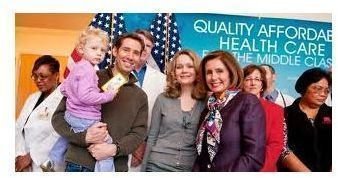Determining COBRA Eligibility: Learn the Ins and Outs of This Important Labor Act
The Consolidated Omnibus Budget Reconciliation Act (COBRA) of 1986 does not confer any new benefits. It allows employees who, owing to change in their employment of other condition and goes out of the coverage of health insurance the option to continue receiving such benefits by making the requisite payment. The employee may pay the stipulated premium plus administrative costs and enjoy the benefits of continued coverage for the given duration.
Not all employees can, however, can exercise such a right. Employees and their dependents become eligible for COBRA extended coverage only under the specific conditions listed in the act.
The Employer

The eligibility of COBRA primarily depends on the employer. The scheme applies to businesses that offer continued group health insurance plans to its employees, and employing more than 20 employees. Employees of small businesses employing between two and twenty employees become eligible for mini-COBRA in some states, if the employer offers group health insurance plans. Individual health plans, where the employee buys plans on their own, with or without reimbursement or premium payment by the employer does not come under the purview of COBRA.
Moreover, if the employer withdraws the health insurance plans to its employees at any point of time, those eligible for COBRA or enjoying the benefits of COBRA also become ineligible from that point onwards.
COBRA is applicable to full-time and part-time employees, as well as independent contractors in the private sector, state, and local government. Employees of the District of Columbia, federal employees, and some church-related organizations are, however, exempt from COBRA provisions.
Job Loss or Change in Working Conditions
Employees who lose their jobs owing to voluntary resignations, involuntary terminations, lay offs, or retirements become eligible to opt for COBRA mandated continued coverage for 18 months from the time they lose their jobs. The employee’s spouse and dependent children also become eligible to opt for such continued coverage.
At times, change in working conditions such as a reduction in number of working hours may change the status of employees from full-time to part-time or temporary workers, taking them outside the purview of the company’s group health insurance scheme. Such employees and their dependents also become eligible for COBRA.
Not all employees who lose their jobs, however, become eligible for COBRA. Employees dismissed for gross misconduct, and their dependents become ineligible for COBRA. The act does not define “gross misconduct” and leaves it to the company to decide what constitutes “gross misconduct.” The employee may challenge the definition in court, and this creates a gray area in an otherwise clear-cut act. Employers would do well to define “gross misconduct” in their company policies and employee handbook, have documentary evidence to prove that the employee did indulge in such gross misconduct, and ensure that such gross misconduct was the primary reason for termination.
When companies go bankrupt, it usually defaults on the group health insurance policy premiums. Since this in effect means discontinuation of the scheme, employees and their dependents become ineligible for COBRA.
The eligibility requirements for mini-COBRA, applicable in some states in companies employing less than 20 employees, are the same, except that the employees or their dependents can opt for continued coverage for only 9 months instead of the usual 18 months.
Dependents
COBRA eligibility extends beyond the employee. The death of an employee, or an employee divorcing or legally separating from the spouse cuts the spouse and dependent children from the family group health insurance scheme offered by the company. COBRA allows such spouse and dependent children to opt for continued coverage for 36 months (18 months for mini-COBRA). Covered employees becoming entitled to Medicare usually means loss of company sponsored health insurance coverage, and the spouse and dependent children can opt for continued coverage for 36 months or 18 months for mini-COBRA. Similarly, employee’s dependent children losing their status as “dependent” on turning an adult age may also opt to continue receiving coverage for the same duration.
Each independent beneficiary has the right to opt for coverage. For instance, on death of a covered employee, a dependent child may opt for the coverage whereas the spouse may opt not to do so.
Retention
COBRA only provides eligible employees with the right to take up the extended coverage. The onus of paying the premiums and associated costs, which is 2 percent of the premium for COBRA and 5 percent of the premium for mini-COBRA, still lies with the employee or their dependent. Failure to make such premium and payments renders them ineligible for continued coverage. Employees or dependents also have the obligation to notify the scheme administrator of their intention to opt for the subscription, within 60 days of receiving notification that they are eligible for the scheme.
Similarly, employees or their dependents taking health insurance coverage through another employer group health plan without any exclusion or limitation for pre-existing conditions renders them ineligible for COBRA from their previous employer.
COBRA does not place any direct financial liability on employers, but makes them responsible to ensure that eligible employees get their due. Large employers would also have to carry the cost of COBRA premium subsidy offered by the federal government, until they claim tax write-offs for an equivalent amount. These factors make identifying whether an employee becomes eligible for COBRA an important HR activity.
References
- Image Credit 1: flickr.com/Nancy Pelosi under CC 2.0 license
- US Department of Labor. “Consolidated Omnibus Budget Reconciliation Act (COBRA) FactSheet.” http://www.dol.gov/ebsa/pdf/fsCOBRA.pdf. Retrieved August 28, 2011.
- “Continued Coverage Rights Under COBRA.” http://www.neca-ibew.org/welfare/COBRA_Notice_and_Procedures.pdf. Retrieved August 28, 2011.
- Image Credit 2: flickr.com/Clever Cupcakes under CC 2.0 license
- “Know Your COBRA.” http://www.cobrainsurance.com/know_your_cobra.htm. Retrieved August 28, 2011.
